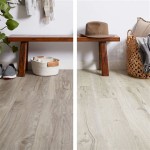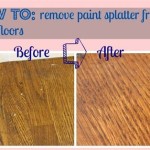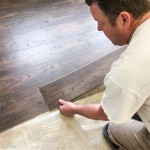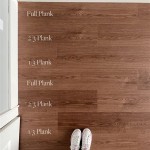Vinyl vs. Laminate Flooring: Pros and Cons
Choosing the right flooring for your home can be a daunting task, especially when faced with the plethora of options available. Vinyl and laminate flooring are two popular choices that offer durability, affordability, and aesthetic appeal. While both share similarities, they also come with unique advantages and disadvantages. This article will delve into the pros and cons of each flooring type, helping you make an informed decision for your specific needs and preferences.
Vinyl Flooring: A Versatile and Durable Option
Vinyl flooring has gained immense popularity in recent years due to its versatility, durability, and ease of maintenance. It consists of a layer of PVC (polyvinyl chloride) that is printed to resemble various materials such as wood, tile, or stone. Vinyl flooring comes in various forms, including sheet vinyl, luxury vinyl planks, and luxury vinyl tiles.
Pros of Vinyl Flooring:
- Water Resistance: Vinyl flooring is inherently water-resistant, making it ideal for areas prone to spills or moisture, such as kitchens, bathrooms, and basements. This feature also makes it easy to clean and maintain.
- Durability: With proper installation, vinyl flooring can withstand heavy foot traffic and resist scratches, dents, and fading. This longevity makes it an excellent choice for high-traffic areas.
- Comfort: Vinyl flooring provides a comfortable surface underfoot, offering a softer feel compared to hard materials like ceramic tile.
- Affordability: Vinyl flooring is generally more affordable than other flooring options such as hardwood or natural stone. This affordability makes it an attractive choice for budget-conscious homeowners.
- Variety of Styles: Vinyl flooring offers a wide range of styles and designs, mimicking various natural materials with realistic textures and colors. This allows you to achieve a desired aesthetic without the high cost of natural materials.
Cons of Vinyl Flooring:
- Potential for Indentation: While durable, vinyl flooring can indent under heavy furniture, especially over time. This can be a concern for areas with frequent furniture rearrangement.
- Limited Lifespan: Vinyl flooring typically has a shorter lifespan compared to other flooring options like hardwood. After extended use, it may show signs of wear and tear, requiring replacement.
- Potential for Off-Gassing: Some vinyl flooring products contain volatile organic compounds (VOCs) that can release harmful fumes into the air. It's important to choose low-VOC or VOC-free products to minimize potential health risks.
Laminate Flooring: A Realistic and Cost-Effective Option
Laminate flooring combines the durability of hardwood with the affordability of vinyl. It consists of multiple layers, including a core layer made of high-density fiberboard and a top layer with a photographic image of wood, stone, or other materials. The top layer is protected by a wear layer that provides durability and scratch resistance.
Pros of Laminate Flooring:
- Cost-Effectiveness: Laminate flooring is generally less expensive than hardwood flooring, making it a budget-friendly choice. This affordability is especially appealing for larger areas.
- Durability: Laminate flooring is known for its durability, resisting scratches, dents, and fading. This makes it suitable for high-traffic areas and homes with pets.
- Easy Installation: Laminate flooring is relatively easy to install, often using a click-lock system that allows for a DIY approach. This can save on installation costs compared to other flooring types.
- Wide Range of Styles: Laminate flooring offers a wide variety of styles and designs, including wood, stone, and tile, providing options to match any decor style.
Cons of Laminate Flooring:
- Water Sensitivity: Laminate flooring is not water-resistant and can be damaged by spills or moisture. It should be avoided in areas prone to water exposure, such as bathrooms or kitchens.
- Limited Durability Compared to Hardwood: While durable, laminate flooring may not offer the longevity and scratch resistance of hardwood. It may show signs of wear and tear over time.
- Potential for Warping: Laminate flooring can be prone to warping in areas with high humidity or moisture, especially if exposed to direct sunlight.
- Not as Eco-Friendly as Hardwood: Laminate flooring is a manufactured product, making it less eco-friendly than hardwood, which is a natural material.

This Or That Laminate Vs Vinyl Ben Laube Homes

Vinyl Vs Laminate Flooring Pros Cons And Differences 2024 Forbes Home

Laminate Vs Vinyl The Home

Laminate Vs Vinyl What You Need To Know

Luxury Vinyl Vs Laminate Flooring Pros And Cons The We Chose Angela Marie Made

Comparison Laminate Vs Vinyl Flooring Which Is Better

Pros And Cons Of Laminate Vinyl Tile Flooring Within The Grove Removing Pergo
Laminate Vs Vinyl Flooring Thumbtack Com

Laminate Vs Vinyl Flooring Comparison Guide

Luxury Vinyl Vs Laminate Flooring Pros And Cons The We Chose Angela Marie Made
See Also







